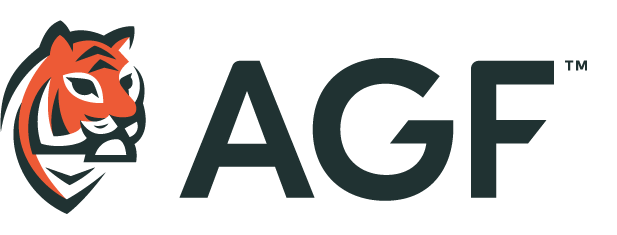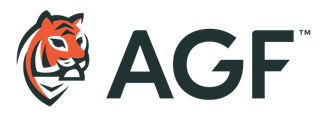
Flirting With European Stocks
Author: Richard McGrath
April 29, 2024
With an improving economic outlook and strengthening corporate profitability, will investors start ‘swiping right’ on European equities?
By its own standards, the European equity market enjoyed a strong first quarter, with the MSCI Europe Index returning about 7%. For a market that has limped along at a roughly 4% annualized return over the past 10 years, that was a pretty heartening performance. Yet any enthusiasm European stocks inspired in investors in Q1 may be tinged with a hint of jealousy: other major equity markets – notably, the U.S., where the S&P 500 Index gained more than 10% – performed even better than Europe did. Of course, underperformance relative to the U.S. is nothing new for Europe. The world’s largest economy has long been the object of global investors’ affection, and to the extent that they pay attention to Europe, it has been largely relegated to the “friend zone” and is often overlooked.
Like love, however, equity markets can be fickle. And there is a case to be made that Europe is deserving of more than passing interest right now. Valuations are at or near historic lows, and the macroeconomic backdrop may be improving. The question going forward, then, is twofold: Are European equities poised to continue their (relatively) robust performance? And could they perhaps become more than a wallflower in the competition for investor enthusiasm?
To answer that, let’s take a closer look at the profile of Europe’s start to 2024. We can break Q1 down into two periods. During January and February, European markets rode high on enthusiasm for artificial intelligence (AI) and expectations of falling interest rates, much as U.S. markets did. European equity market returns were highly concentrated in the so-called GRANOLAS group of 11 stocks (GSK PLC, Roche Holding AG, ASML Holding NV, Nestle SA, Novartis AG, Novo Nordisk A/S, L’Oreal SA, LVMH Moet Hennessy Louis Vuitton SE, AstraZeneca PLC, SAP SE, and Sanofi SA), which comprise Europe’s sort-of version of the U.S. “Magnificent Seven,” but in fact market concentration was even more intense than the acronym implies. At one point, a mere five stocks accounted for 110% of overall market return (meaning, effectively, that the rest of the market was negative). The tide turned in March, however, when market returns became much more broad-based. The broadening was led by the banking sector. Quarterly results for the large-cap Euro banks initially disappointed investors, but they all rallied strongly to close the quarter.
One driving force for that broader rally late in the quarter was simply that valuations looked so cheap. It’s true that European stocks traditionally trade at a discount to their U.S. counterparts, and there’s good reason for that. Economic fundamentals in the U.S. have long been much stronger than in Europe, and this year U.S. real gross domestic product ( GDP) growth is estimated to come in five times higher than Europe’s. Also, U.S. equities tend to be more profitable than their European peers. Yet as much as fundamentals dictate that there should be a valuation discount on European equities, it has begun to look excessive. On a forward price-to-earnings basis, Europe has been trading at a record discount to the U.S., even after adjusting for sector weighting. That’s despite clear signs that the profitability gap with U.S. stocks is narrowing. Leading indicators such as the purchasing managers’ index (PMI) and better-than-expected corporate earnings results have been picking up. Meanwhile, return on equity (ROE) for the MSCI Europe Index has rebounded from pandemic-era lows more quickly than for the U.S. equity market – a disparity that investors seem to have largely overlooked.
We anticipate interest rate policy could also create tailwinds for European stocks this year. Both the European Central Bank (ECB) and the U.S. Federal Reserve (Fed) are in a quandary, but for different reasons. In the U.S., economic growth is strong, which is making the Fed reluctant to throw fuel on the fire by cutting interest rates. In contrast, the ECB faces no such growth “problem,” but inflation, particularly wage inflation, remains a key concern. So, it remains hawkish, but it may have more runway than the Fed does to cut rates when (or if) inflation approaches target. Current analyst expectations are for a 25 basis point cut from the ECB in June, with two more cuts in the second half of 2024. By comparison, some economists now expect the Fed to hold off on cutting rates until September, according to a recent Reuters poll. If interest rates come down faster in Europe than in the U.S., we believe the outlook for GDP growth and equity valuations could look much brighter.
Certainly, there are risks to this scenario. Inflation is one: it might prove stickier than expected, delaying ECB easing. Another is politics. The United Kingdom’s economically questionable Brexit experiment is no doubt fresh in some investors’ minds, but the upside is that few if any politicians in other countries are looking to campaign for similar exits from the European Union. A more pressing topic in Europe is immigration, which is helping far-right parties gain traction in the run-up to the European Parliament election in June. Yet polling suggests the far right is attracting only about 15% to 20% of voter support – enough to gain ground in the election, but not nearly enough to challenge incumbent parties for power.
None of this is to argue that Europe can or should be expected to usurp America’s long-held position as the destination of choice for many investors. The case for European equities as an opportunity for portfolio diversification, however, we believe appears to be increasingly valid. At the very least, the improving economic outlook and strengthening corporate profitability suggest that European stocks have not been getting as much love from investors as they should.
The views expressed in this blog are those of the author and do not necessarily represent the opinions of AGF, its subsidiaries or any of its affiliated companies, funds, or investment strategies.
GSK PLC, Roche Holding AG, ASML Holding NV, Nestle SA, Novartis AG, Novo Nordisk A/S, L’Oreal SA, LVMH Moet Hennessy Louis Vuitton SE, AstraZeneca PLC, SAP SE, Sanofi SA (i.e. “GRANOLAS”), Alphabet Inc., Amazon.com Inc., Apple Inc., Meta Platforms Inc., Microsoft Corp., Nvidia Corp., and Tesla Inc. (i.e. “Magnificent Seven”) are current holdings in AGF portfolios. References to specific securities are presented for illustrative purposes only and should not be considered as an indication of how the portfolio of any investment vehicle is or will be invested. It should not be assumed that investments in the securities identified were or will be profitable and should not be considered recommendations by AGF Investments.
Commentary and data sourced from Bloomberg, Reuters and other news sources unless otherwise noted. The commentaries contained herein are provided as a general source of information based on information available as of April 24, 2024 and are not intended to be comprehensive investment advice applicable to the circumstances of the individual. Every effort has been made to ensure accuracy in these commentaries at the time of publication, however, accuracy cannot be guaranteed. Market conditions may change and AGF Investments accepts no responsibility for individual investment decisions arising from the use or reliance on the information contained here.
This document may contain forward-looking information that reflects our current expectations or forecasts of future events. Forward-looking information is inherently subject to, among other things, risks, uncertainties and assumptions that could cause actual results to differ materially from those expressed herein.
For Canadian investors: Commissions, trailing commissions, management fees and expenses all may be associated with investment fund investments. Please read the prospectus before investing. Investment funds are not guaranteed, their values change frequently and past performance may not be repeated.
AGF Investments is a group of wholly owned subsidiaries of AGF Management Limited, a Canadian reporting issuer. The subsidiaries included in AGF Investments are AGF Investments Inc. (AGFI), AGF Investments America Inc. (AGFA), AGF Investments LLC (AGFUS) and AGF International Advisors Company Limited (AGFIA). AGFI is registered as a portfolio manager across Canadian securities commissions. AGFA and AGFUS are registered investment advisors with the U.S. Securities Exchange Commission. AGFIA is regulated by the Central Bank of Ireland and registered with the Australian Securities & Investments Commission. The term AGF Investments may refer to one or more of these subsidiaries or to all of them jointly. This term is used for convenience and does not precisely describe any of the separate companies, each of which manages its own affairs.
AGF Investments entities only provide investment advisory services or offers investment funds in the jurisdiction where such firm, individuals and/or product is registered or authorized to provide such services.
Investment advisory services for U.S. persons are provided by AGFA and AGFUS. In connection with providing services to certain U.S. clients, AGF Investments LLC uses the resources of AGF Investments Inc. acting in its capacity as AGF Investments LLC’s “participating affiliate”, in accordance with applicable guidance of the staff of the SEC. AGFA engages one or more affiliates and their personnel in the provision of services under written agreements (including dual employee) among AGFA and its affiliates and under which AGFA supervises the activities of affiliate personnel on behalf of its clients (“Affiliate Resource Arrangements”).
® ™ The “AGF” logo and all associated trademarks are registered trademarks or trademarks of AGF Management Limited and used under licence.
RO:2024029-354267
About AGF Management Limited
Founded in 1957, AGF Management Limited (AGF) is an independent and globally diverse asset management firm. Our companies deliver excellence in investing in the public and private markets through three business lines: AGF Investments, AGF Capital Partners and AGF Private Wealth.
AGF brings a disciplined approach, focused on incorporating sound, responsible and sustainable corporate practices. The firm’s collective investment expertise, driven by its fundamental, quantitative and private investing capabilities, extends globally to a wide range of clients, from financial advisors and their clients to high-net worth and institutional investors including pension plans, corporate plans, sovereign wealth funds, endowments and foundations.
Headquartered in Toronto, Canada, AGF has investment operations and client servicing teams on the ground in North America and Europe. AGF serves more than 800,000 investors. AGF trades on the Toronto Stock Exchange under the symbol AGF.B.
For further information, please visit AGF.com.
© 2026 AGF Management Limited. All rights reserved.







